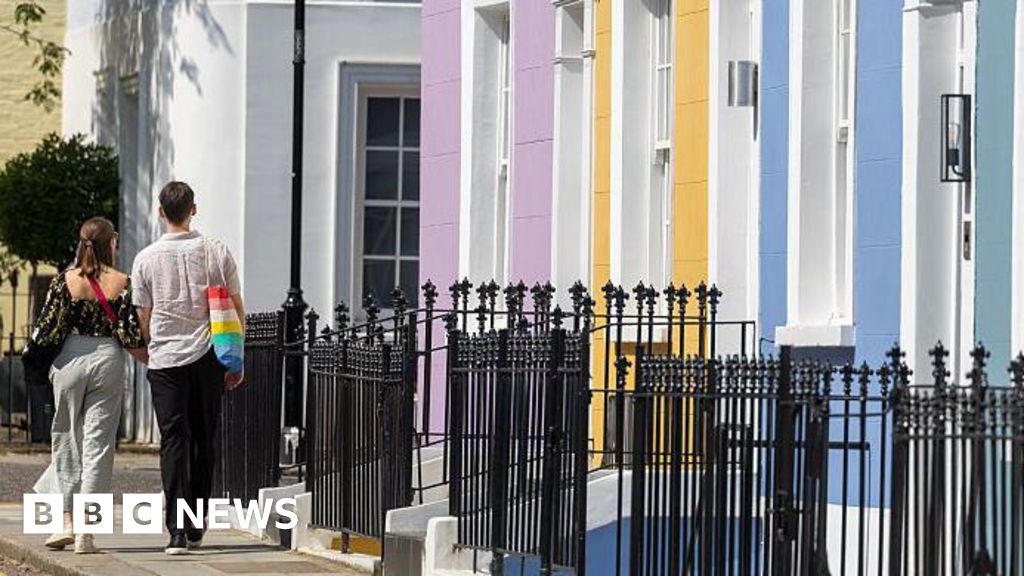House price growth slows amid property tax calls
- BBC News
House price growth has slowed as calls grow for a reform of property taxes in the Autumn budget.
The average price of a home in the UK grew by 2.1% in the year to the end of August, a slowdown from the 2.4% annual growth recorded in July, according to data from lender Nationwide.
The sluggish growth comes amid reports that the government is considering an overhaul of stamp duty, capital gains tax on homes, and council taxes in a bid to raise more money and boost the housing market.
Robert Gardner, chief economist at Nationwide Building Society, told the BBC the UK needs a tax system that "allows people to move more effectively".
"Its definitely worth looking at UK property taxes," he added.
The introduction of a National Insurance levy for landlords, removal of the capital gains tax relief on selling pricier homes, the abolition of stamp duty, and replacement of council tax with a national property tax are some of the options reportedly being discussed.
Experts views on the changes are mixed, with some arguing that replacing stamp duty in particular could speed up the housing market but cost billions in lost tax revenue.
The average UK home now costs £271,079, according to Nationwides data, which is based on its own mortgage activity. This does not include buyers who purchase homes with cash, or buy-to-let deals. Cash buyers account for about a third of housing sales.
Augusts annual rate of growth is the same as Nationwide recorded in June this year. The last time house price growth was this slow was in July 2024.
Despite the drop in the pace of growth, Mr Gardner said housing remains unaffordable for many buyers.
"House prices are still high compared to household incomes, making raising a deposit challenging for prospective buyers, especially given the intense cost of living pressures in recent years," he said.
One estate agent said the latest figures suggested the housing market was "catching its breath, rather than changing direction".
Mortgage costs are three times the level seen in the wake of the pandemic, Nationwide said, and that means making monthly repayments is a barrier to home ownership.
Although pressure will remain, particularly for those trying to buy a first home, Mr Gardner said there were some signs of hope for them.
Further cuts in interest rates by the Bank of England, following the latest reduction in August, could ease mortgage rates further and incomes were expected to outpace house prices, he said.
The latest data shows the interest rate on an average two-year fixed mortgage was 4.96%, according to the financial information service Moneyfacts. The average rate for a five-year deal was 5%.
Karen Noye, a mortgage expert at wealth manager Quilter, said: "While the economic backdrop remains challenging, todays figures suggest the housing market is still managing to hold reasonably firm for now.
"Sustained momentum will depend on future interest rate decisions and whether upcoming policy decisions support or hinder market activity."